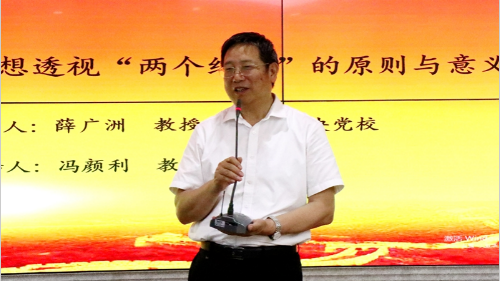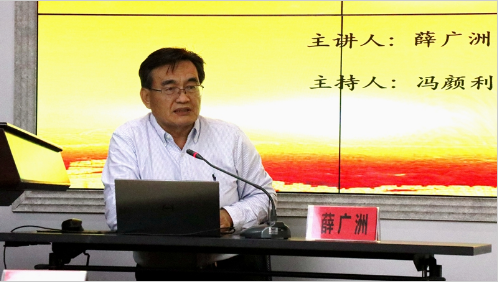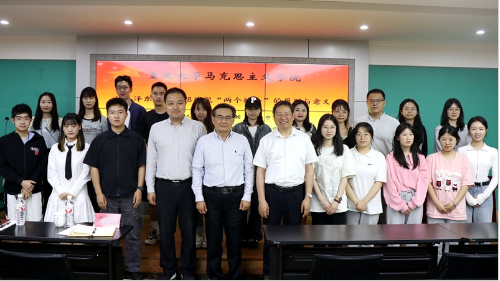On May 30, 2024, the 52nd Red Rock Lecture was held in Room 408 of the School of Marxism. Prof. Xue Guangzhou from the Party School of the Central Committee of the Communist Party of China (C.P.C.) delivered a special lecture titled "The Principle and Significance of the 'Two Integrations' in Mao Zedong's Philosophical Thought." The lecture was hosted by Prof. Feng Yanli, Dean of the School of Marxism, with active participation from faculty and students of the School of Marxism.

Prof. Xue firstly emphasized that the Sinicization of Marxism is both a long-standing historical topic and a contemporary issue that evolves continuously with the times. Since Mao Zedong first proposed the concept of "Sinicization of Marxism" in his work "On the New Stage" at the Sixth Plenary Session of the Sixth Communist Party of China (CPC) Central Committee, more than 80 years have passed. However, it was not until the 1990s, influenced by the reform and opening-up policies, that China began systematic and in-depth research on this topic.

Prof. Xue next highlighted the significance of a precise understanding of China's unique circumstances and its rich traditional culture. He stressed that a true comprehension of China's realities should be rooted in an objective assessment of China’s facts and its contemporary context. By integrating Marxist theory with the practical realities of China, he pointed out that it's essential to address China's developmental path, goals, and direction. Therefore, exploring the practical issues of China requires a correct and scientific way to understand its primary social conditions.
Prof Xuewent on to assert that any theoretical framework intended to address China's challenges must recognize and deeply engage with the influence of China's outstanding traditional culture. He advocated for a study of traditional Chinese culture that draws wisdom from Mao Zedong's insightful perspectives. He further clarified the nuances between the "essence" and "quintessence" of traditional Chinese culture, examining these concepts from various dimensions including their inherent nature, connotations, enduring qualities, and historical significance.
Finally,Prof. Feng expressed heartfelt gratitude to Prof. Xue on behalf of the attending faculty and students. He concluded that Prof. Xue's emphasis was on the importance of a nuanced and informed approach to understanding both the current realities and the traditional culture of China, as a means to formulate theories and solutions that are well-suited to the country's unique developmental needs.

This lecture not only increased the students' attention to the actual development of Chinese society but also deepened their understanding of the connotations of traditional Chinese culture, providing valuable inspiration for their future academic research and practical work.
Copyedited by Zeng Chenxi
